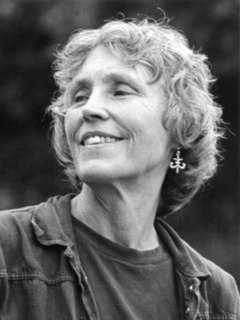A Quote by Bertolt Brecht
Literary works cannot be taken over like factories, or literary forms of expression like industrial methods. Realist writing, of which history offers many widely varying examples, is likewise conditioned by the question of how, when and for what class it is made use of.
Related Quotes
I use biography, I use literary connections (as with Platen - this seems to me extremely helpful for appreciating the nuances of Mann's and Aschenbach's sexuality), I use philosophical sources (but not in the way many Mann critics do, where the philosophical theses and concepts seem to be counters to be pushed around rather than ideas to be probed), and I use juxtapositions with other literary works (including Mann's other fiction) and with works of music.
In my profession more generally, it's not an exaggeration to say that masculinity is viewed as the root of all evil. If you were to take a literary theory course, you might think it would be about literature, but it's really not. It's about all the various forms of oppression on earth and how we can see them playing out in literary works. And behind all these forms of oppression is a guy.
My literary criticism has become less specifically academic. I was really writing literary history in The New Poetic, but my general practice of writing literary criticism is pretty much what it always has been. And there has always been a strong connection between being a writer - I feel as though I know what it feels like inside and I can say I've experienced similar problems and solutions from the inside. And I think that's a great advantage as a critic, because you know what the writer is feeling.
That the question of likability even exists in literary conversations is odd. It implies that we are engaging in a courtship. When characters are unlikable, they don’t meet our mutable, varying standards. Certainly we can find kinship in fiction, but literary merit shouldn’t be dictated by whether we want to be friends or lovers with those about whom we read.
I actually dislike, more than many people, working through literary allusion. I just feel that there's something a bit snobbish or elitist about that. I don't like it as a reader, when I'm reading something. It's not just the elitism of it; it jolts me out of the mode in which I'm reading. I've immersed myself in the world and then when the light goes on I'm supposed to be making some kind of literary comparison to another text. I find I'm pulled out of my kind of fictional world, I'm asked to use my brain in a different kind of way. I don't like that.
A critical assumption is sometimes made that [Grisham, Clancey, Crichton & myself] have access to some mystical vulgate that other (and often better) writers cannot find or will not deign to use. I doubt if this is true. Nor do I believe the contention of some popular novelists... that thier success is based on literary merit -- that the public understands true greatness in ways the tight-a**ed, consumed-by-jealousy literary establishment cannot. This idea is ridiculous, a product of vanity and insecurity.
Many of Judy Blume's books - which I devoured when I was growing up and where I found characters that were believable because they were a lot like me - caused considerable consternation when they were first published, but now they're widely accepted as an essential part of the children's literary canon.






































